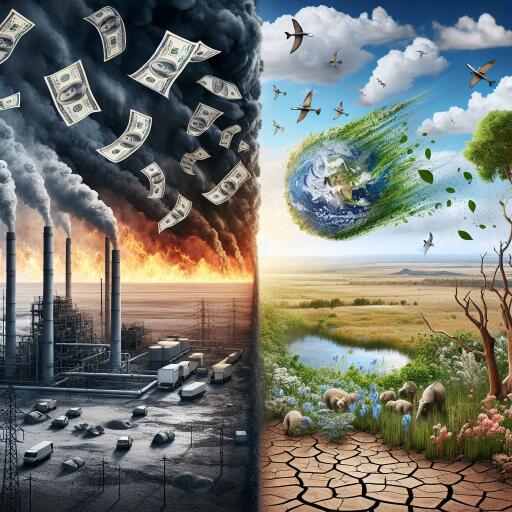
The Cost of Business-as-Usual Caused by Climate Clangers
The financial implications of neglecting climate change are akin to a ticking time bomb within our society, one that threatens not just our environment but our economy at large. With governments worldwide crafting budgets to address societal challenges, the issue of climate change must take center stage, transforming from a footnote to a headline in public financial planning and discourse.
To illuminate the shadows cast by climate inaction, a more transparent and detailed accounting of these costs should be integrated into the annual financial reports of governments. This approach will not only disclose the economic perils of our current path but also vindicate investments in climate mitigation as fiscally responsible, rather than politically extravagant actions.
While there has been a nascent shift towards incorporating climate considerations into the fiscal outlines at federal levels, such as seen in recent Australian budgets, the narrative remains insufficiently compelling to reflect the urgent and substantial nature of the climate crisis. Unfortunately, most local governments lag even further behind, leaving a patchwork of recognition that fails to confront the enormity of the challenge.
Beyond merely acknowledging the problem, there’s a critical need for a paradigm shift in how governments and businesses evaluate the costs and benefits of policy decisions. The traditional models of impact analysis, which focus on direct financial outcomes and often overlook environmental considerations, are woefully inadequate in the face of climate change. Policies, projects, and investments must instead be scrutinized through the lens of their carbon footprint, incorporating the social cost of carbon—an estimate of the economic damages associated with a metric ton of CO2 emissions—into every fiscal evaluation.
Take for instance the closure of major coal-fired power stations. The decision on how to replace these energy behemoths offers a clear instance where applying a value to the social cost of carbon could steer choices towards renewable options—even in cases where they may not be the cheapest short-term solution. Rather than defaulting to another fossil fuel source, understanding the broader economic benefits of reducing carbon emissions could tip the scales in favor of clean energy.
The adoption of a social cost of carbon, as seen in international practices like those in the United States and Canada, offers a tangible methodology for weighing the true impact of emissions. Integrating this approach throughout governmental fiscal planning and private sector evaluations would ensure that the hidden costs of carbon pollution are no longer ignored but are central to economic decision-making.
Furthermore, the dialogue surrounding climate action needs to demystify the individual’s role in this collective effort. From home renovations that improve energy efficiency to the adoption of electric vehicles, personal choices can significantly contribute to reducing our carbon footprint. Encouraging these choices, through public awareness campaigns and incentives, could alleviate the perceived enormity of the challenge, making it more relatable and manageable for the average citizen.
Highlighting the power of personal decisions does not distract from the critical accountability of large fossil fuel corporations but rather complements the wider efforts needed to steer our economy towards sustainability. It also helps diffuse the political tensions often associated with discussions around climate investments, by recognizing that a portion of the funds required for these transitions would be spent regardless, as part of maintaining and upgrading our lifestyle.
In conclusion, breaking through the barrier of short-term thinking that currently dominates our economic and environmental strategies requires a concerted effort to recalibrate how we account for and act upon the escalating costs of climate change. By embedding the social cost of carbon into our financial assessments and embracing the collective action of individuals, governments, and businesses alike, we can forge a path towards a sustainable and economically resilient future.





Leave a Reply